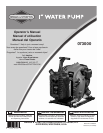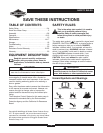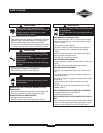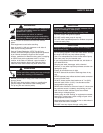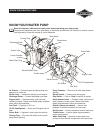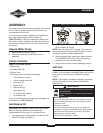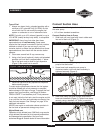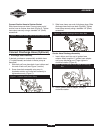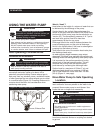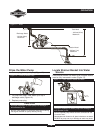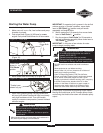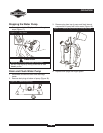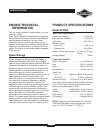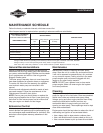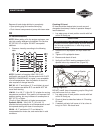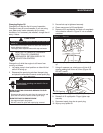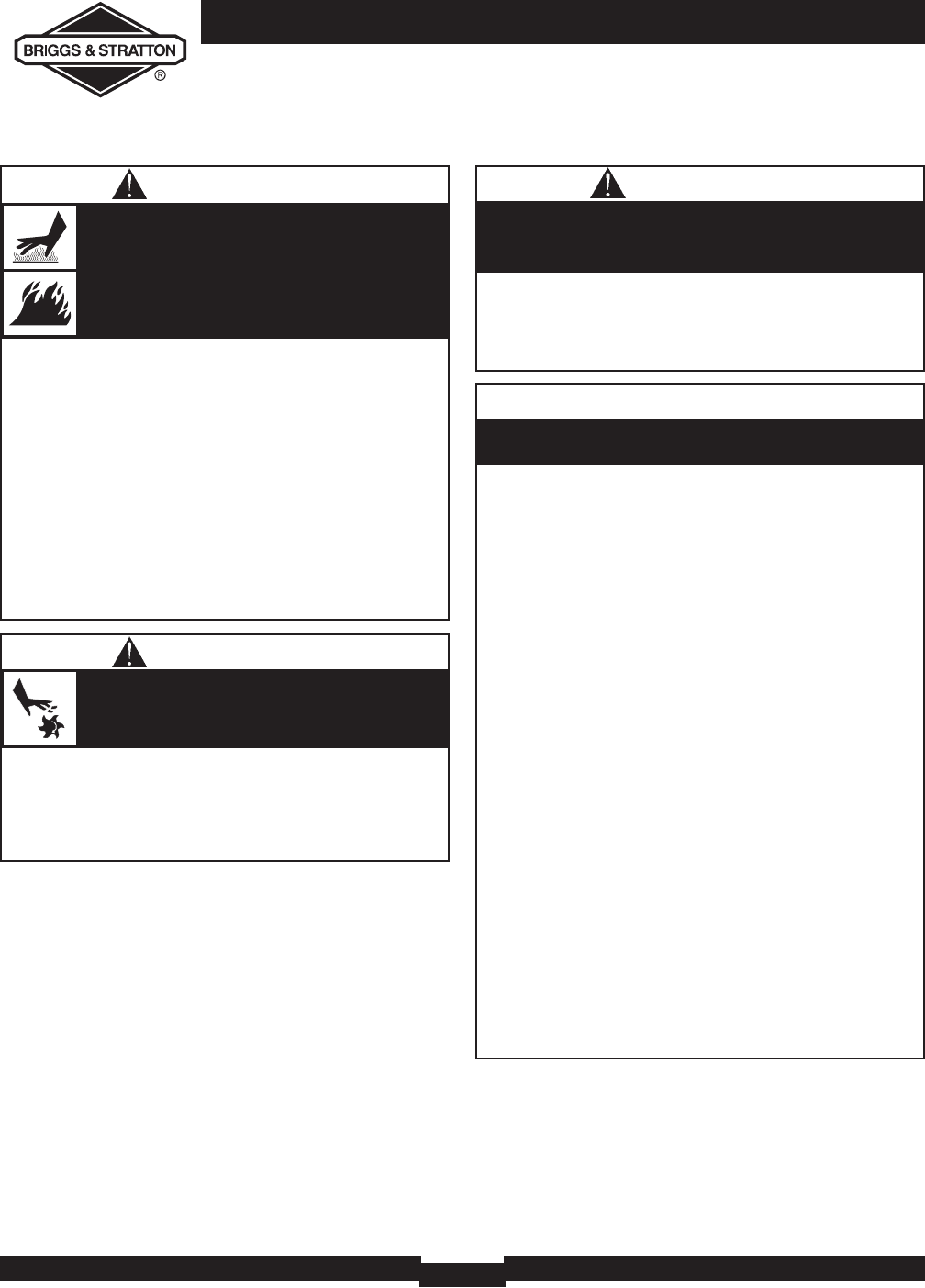
SAFETY RULES
4
• DO NOT tamper with governed speed.
• DO NOT modify water pump in any way.
• DO NOT allow unqualified persons or children to operate
or service water pump.
Excessively high operating speeds increase risk of
injury and damage to water pump.
Excessively low speeds impose a heavy load.
CAUTION
• Be sure pump chamber is filled with water before starting
the engine. NEVER run pump without priming.
• Use a non-collapsible hose on the suction side of pump.
• Use water pump only for intended uses.
• If you have questions about intended use, ask dealer or
call 1-800-743-4115.
• Pumping sea water, beverages, acids, chemical
solutions, or any other liquid that promotes corrosion can
damage the pump.
• Ensure all connections are air tight.
• DO NOT obstruct the suction or discharge hose in any
way.
• NEVER operate pump without strainer basket connected
to end of suction hose.
• DO NOT exceed suction head maximum of 7 m (23 ft.)
and total head of 35 m (115 ft.). Use shortest suction
head possible (see page 8).
• NEVER allow vehicles to drive over hoses. If a hose must
be positioned across a roadway, use planking on each
side of hose to allow vehicles to pass over without
obstructing or collapsing hose.
• Anchor pump to avoid “walking” or equipment movement,
especially if located near a ditch or edge of open ravine.
The equipment could fall in.
• Keep equipment away from edge of river or lake where it
could cause the bank to collapse.
• DO NOT insert any objects through cooling slots.
Improper treatment of water pump can damage it
and shorten its life.
CAUTION
• NEVER place hands or body parts inside of running
pump or hoses.
• DO NOT wear loose clothing, jewelry or anything that
may be caught in the starter or other rotating parts.
• Tie up long hair and remove jewelry.
Starter and other rotating parts can entangle
hands, hair, clothing, or accessories.
WARNING
• DO NOT touch hot surfaces and avoid hot exhaust
gases.
• Allow equipment to cool before touching.
• Keep at least 5 ft. (152 cm) clearance on all sides of
water pump including overhead.
• Code of Federal Regulation (CFR) Title 36 Parks,
Forests, and Public Property require equipment powered
by an internal combustion engine to have a spark
arrester, maintained in effective working order, complying
to USDA Forest service standard 5100-1C or later
revision. In the State of California a spark arrester is
required under section 4442 of the California Public
resources code. Other states may have similar laws.
Running engines produce heat. Temperature
of muffler and nearby areas can reach or
exceed 150°F (65°C).
Severe burns can occur on contact.
Exhaust heat/gases can ignite combustibles,
structures or damage fuel tank causing a fire.
WARNING



